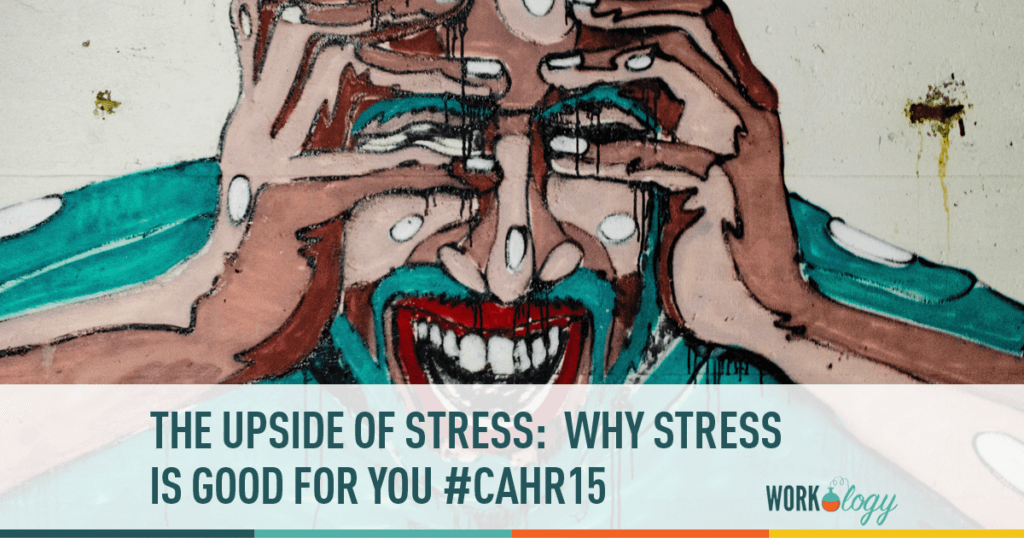Is it possible that everything we think we know about stress is wrong? Instead of something to be avoided, reduced or managed, could stress actually have an upside?
Kelly McGonigal, Ph.D., health psychologist and a keynote speaker at the recent Professionals in Human Resources Association (PIHRA) conference in Anaheim, CA, talks about experiencing a complete turn-around in her thinking about the effects of stress on people. After years of warning people about the negative impact of stress, Dr. McGonigal came across study after study with a different conclusion.
The New Science of Stress
As she delved into the new science of stress, Dr. McGonigal found a high correlation between people living stressful lives and those with lives full of joy, laughter, learning, and love. The studies indicated that highly stressed people tended to perceive their lives as more meaningful than those who led less stressful lives. Those who had overcome great adversity felt more resilient and better able to recognize the good in life. Athletes often attribute overcoming challenges as the source of their success.
Dr. McGonigal now believes how people think about stress determines its effect on their lives. In other words, “the effect you expect is the effect you get”.
The public is bombarded through media with negative images associated with stress. Messages such as, “stress is killing you,” “stress is a loaded gun,” and “how to lead a stress-free life” establish a mindset that all stress is bad for you. People who buy into that negative mindset suffer as a result. However, those who view stress more positively—as an opportunity for growth and learning or a means to develop resiliency—are happier, healthier, and more productive at work.
How HR Can Change the Stress Mindset at Work
In her speech to the PIHRA audience, Dr. McGonigal offered several suggestions for how Human Resources professionals can change the prevailing negative mindset about stress. First and foremost, she recommends creating a balanced climate related to stress in the workplace. We can acknowledge that stress is unavoidable, but we should seek to reduce or eliminate images and messages that perpetuate the idea that stress is always negative. These images are not helping people.
Of course, obvious inducers of unnecessary stress, such as bullies and toxic office politics, must be removed from the workplace.
As we know, supervisors and managers exert a critical influence on how employees respond to situations. Managers who personally see the upside of stress and demonstrate a positive reaction will encourage employees to do the same. McGonigal recommends training supervisors and managers in the new science of stress to create a healthier workplace climate.
Dr. Kelly McGonigal’s book, The Upside of Stress: Why Stress Is Good For You And How To Get Good At It, (Avery, 2015) provides valuable information on the new science of stress. Her TED Talk, “How to Make Stress your Friend”, has received more than nine million views.









One Comment
Very interesting topic! I’m not sure stress is necessarily all the way unhealthy, I think as anything there needs to be a balance… I must READ more!!
Comments are closed.